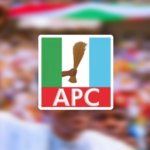On May 3, the United Nations (UN) marked the 2020 World Press Freedom Day. With the theme: “Journalism Without Fear or Favour”. The UN organised events across the world to deliberate on the challenges of an increasingly complex media landscape, especially the perennial debate on press freedom and that of tackling disinformation. The UN outlined four cardinal objectives of the World Press Freedom Day: to “celebrate the fundamental principles of press freedom, assess the state of press freedom throughout the world, defend the media from attacks on their independence and pay tribute to journalists who have lost their lives in the line of duty.”
The UN Secretary General, António Guterres’s, message this year is very apt and it addresses the challenges facing journalists in this dispensation. Guterres said, “On World Press Freedom Day, we call on governments – and others – to guarantee that journalists can do their jobs throughout the COVID-19 pandemic and beyond. As the pandemic spreads, it has also given rise to a second pandemic of misinformation; from harmful health advice to wild conspiracy theories. The press provides the antidote: verified, scientific, fact-based news and analysis…”
Although the UN scribe specifically spoke on the restrictions journalists face while on the frontline in the war against COVID-19, the reality is that the legacy media industry, in the last decade, has faced existential challenges, which have been aggravated by the economic downturn caused by COVID-19. The legacy media have been hit below the belt by disruptions and innovations powered by the internet. As news aggregators deliver contents, which publishers have spent money to produce, to online readers without recourse to media organisations, the fortunes of the traditional media continue to plummet. For those who have migrated to platforms on the internet in response to the trend, the revenues that trickle in hardly offset their recurrent expenditure. This between the rock and hard place predicament has led to massive lay-off, closure of media outlets and dilemma for journalists and media owners.
It is for the above reason that we call on government, corporate and Non-Governmental Organisations (NGOs) to come to the aid of the media. As the UN secretary general mentioned, the legacy media hold the antidote to disinformation, because their discipline and stringent gate-keeping processes ensure “verified, scientific, fact-based news and analysis.”
The first step in ensuring that journalists practice without restriction is to halt all forms of intimidation against reporters and editors. In Nigeria, journalists face unlawful arrests, harassment, intimidation, abduction, confiscation of working tools, cyber attacks and misapplication of the Cybercrime Prevention Act to stifle the activities of online media. Journalists cannot serve Nigeria conscientiously under these conditions.
Furthermore, as a result of the debilitating economic conditions, we call for incentives in the form of low interest loans to media organisations to enable them cope with the cost of importing essential materials for their production. For the print media, the cost of newsprint, ink, accessories of printing machines, computers and the like have continued to skyrocket beyond the reach of media entrepreneurs. Without low-interest loans, they may close shop and throw thousands of journalists into the burgeoning job market. Other incentives like company tax holiday, a special media support fund, or even concessionary rate of forex purchases may not be out of order. These have become necessary because the media, apart from being purveyors of credible news, play educational roles. Some countries now fund the media the way they fund education.
It is time for foundations, also, to support the media. Though media organisations are run as profit-making organisations, in reality they provide social services. The media are the wheel of democracy because they provide the forum for government and opposition to air their views. For foundations set up to promote democracy, rule of law, transparency and accountability, we urge them to intervene in this predicament to keep the media alive to their constitutional responsibilities.




